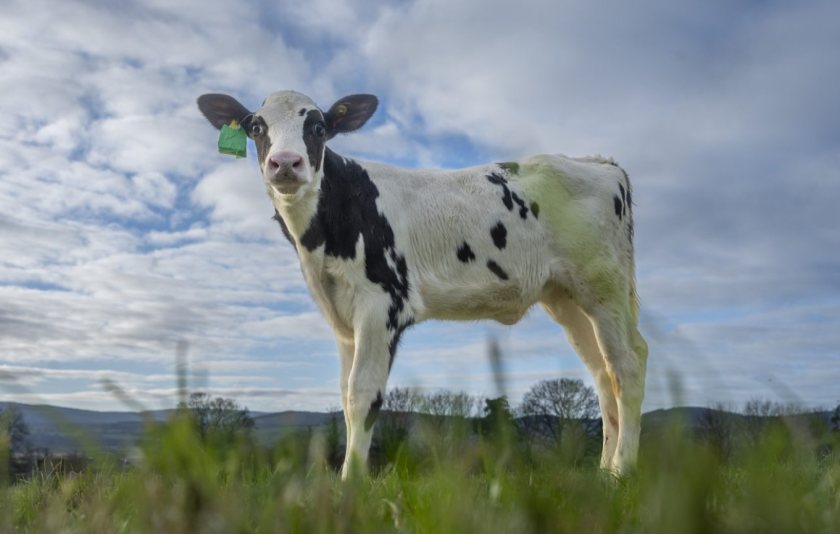
An IVF calf born in Scotland could help accelerate the dairy sector's journey to net zero due to her ability to produce less methane, researchers say.
The calf, called Hilda, may look very ordinary, but she represents a key milestone for the world’s longest-running livestock genetics project.
The animal is the first of the 16th generation of the famous Dumfries-based Langhill Herd, and significantly, she is the first of the herd to be born through IVF.
Hilda is part of the Cool Cows project, managed by Scotland’s Rural College (SRUC), Cumbria vets Paragon and Semex, which aims to establish a nucleus of highly methane-efficient animals.
By taking eggs – non-surgically – from her mother at seven months old, fertilising them in a lab and then putting the resulting embryo into a surrogate, the next generation of the Langhill Herd has arrived 18 months earlier than previously possible.
With the process set to be repeated, it means that researchers are doubling the rate of genetic gain and thereby accelerating the accumulation of data to breed more efficient dairy cows.
SRUC’s project lead Professor Richard Dewhurst said the birth of Hilda was potentially a hugely significant moment for the UK dairy industry.
He said: “With global consumption of dairy produce continuing to grow, breeding livestock for sustainability is extremely important.
“We will use a new genomic assessment alongside existing production and environmental efficiency indices to select elite, methane-efficient heifers for breeding.
"The Cool Cows project will produce a greater number of offspring from these donors, rapidly establishing a nucleus of highly methane-efficient calves.”
Stuart Martin, programme director of Digital Dairy Chain added: "With the environmental impact of farming being a critical global issue, projects that look for innovative solutions to mitigate this impact are vital to the industry.
"The birth of the first Cool Cows calf marks a significant milestone, promising significant results for the future of sustainable farming.”
